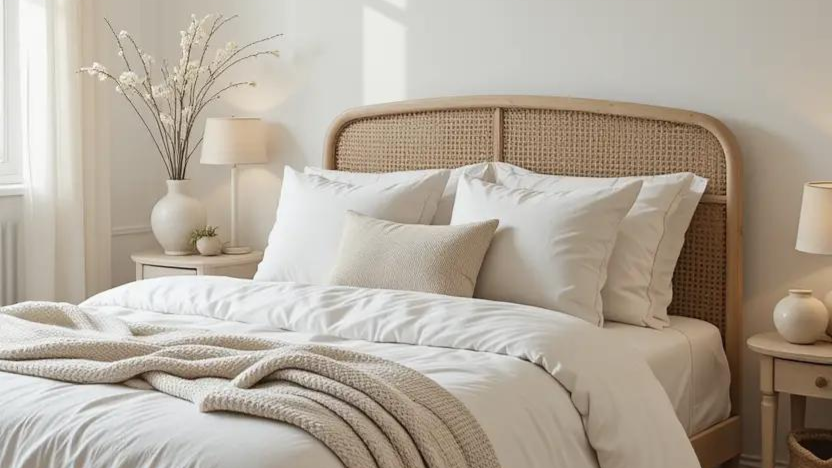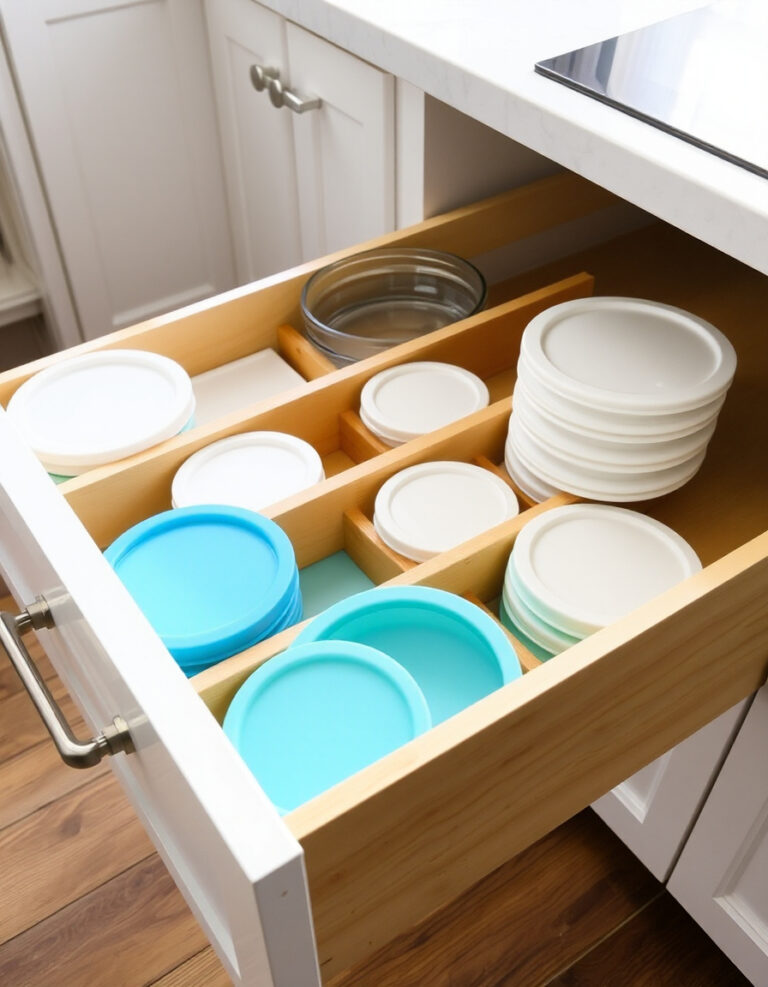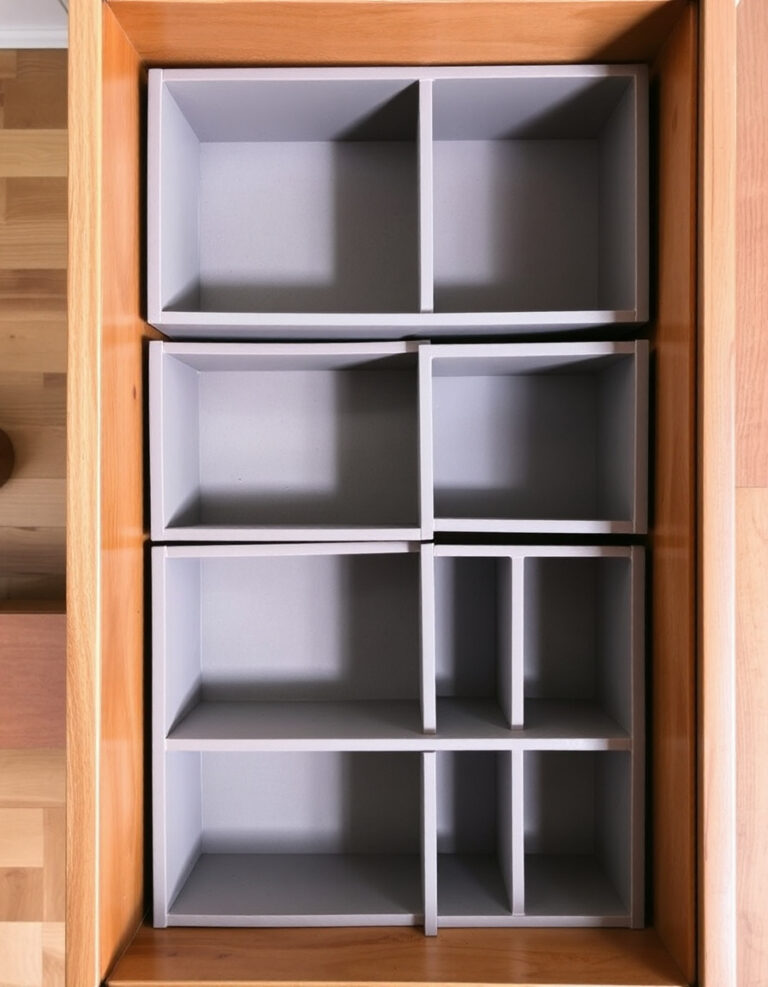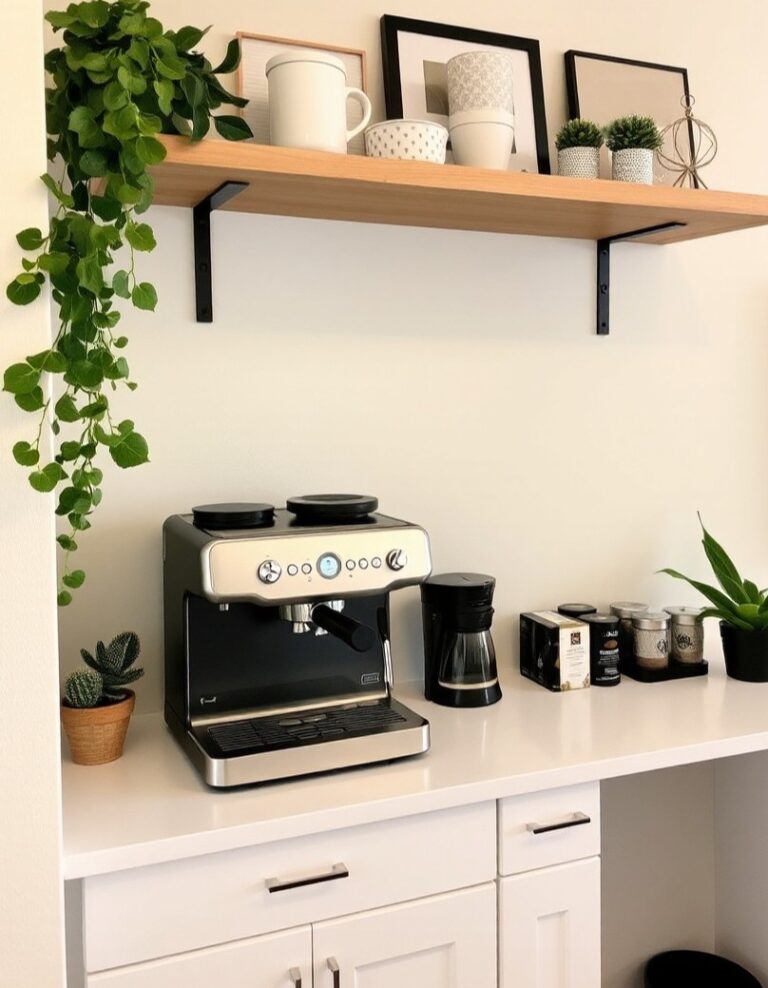You’ve tried everything — sleeping apps, chamomile tea, even counting sheep — but you’re still tossing and turning every night. What if the real problem isn’t your bedtime routine, but your bedroom itself? Your sleep environment plays a massive role in how well you rest, and small changes can make a huge difference.
Here’s what you’ll discover: Nine clear warning signs that your bedroom might be sabotaging your sleep, plus simple fixes you can implement tonight to transform your space into a sleep sanctuary.
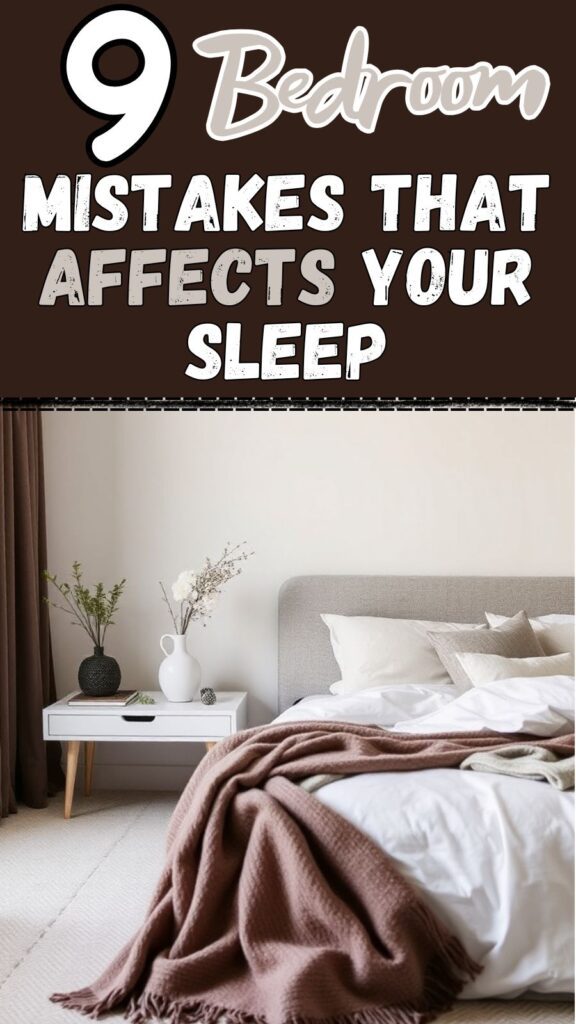
1. You’re Constantly Too Hot or Too Cold
Temperature battles are sleep killers. If you’re kicking off blankets one minute and pulling them back on the next, your bedroom temperature is working against you.
The ideal sleep temperature ranges between 65-68°F (18-20°C). When your bedroom is affecting your sleep through temperature issues, your body struggles to naturally cool down — a process essential for deep sleep.
Quick fixes:
- Adjust your thermostat 2-3 hours before bedtime
- Use breathable cotton or bamboo sheets instead of synthetic materials
- Consider a fan for air circulation, even in winter
- Layer blankets so you can easily adjust throughout the night
You don’t need an expensive smart thermostat to start — even opening a window slightly can make a dramatic difference in your sleep quality.
2. Light Creeps In From Multiple Sources
Even tiny amounts of light can disrupt your sleep cycle. Street lights, electronics, or early morning sun streaming through thin curtains all signal your brain to stay alert when it should be winding down.
Your bedroom is affecting your sleep if you can see your hand in front of your face in the dark. Light suppresses melatonin production, making it harder to fall asleep and stay asleep.
Essential light-blocking strategies:
- Install blackout curtains or blinds
- Cover LED lights on electronics with tape
- Use an eye mask for travel or as backup
- Replace bright alarm clocks with dim, red-light versions
Notice how hotels often have multiple layers of window coverings? That’s because darkness is non-negotiable for quality sleep.
3. Your Bedroom Doubles as an Office or Entertainment Hub
Multi-purpose bedrooms confuse your brain. For example when you work in bed, you’re training your mind to associate your bedroom with alertness instead of rest.
This is one of the most common ways a bedroom is affecting your sleep without you realizing it. Your brain needs clear boundaries to trigger its natural sleep response.
Create a sleep-only zone: Move work materials to another room, even if it’s just the kitchen table.
If space is tight, use a room divider or screen to visually separate your sleep area from work zones.
4. Clutter Surrounds Your Bed
Visual chaos creates mental chaos. Piles of clothes, stacks of books, or miscellaneous items scattered around your bedroom create low-level stress that keeps your mind active when it should be settling down.
When clutter makes your bedroom affect your sleep, it’s because your subconscious is processing all those visual inputs instead of relaxing.
Simple decluttering wins:
- Clear your nightstand of everything except essentials (lamp, water, maybe one book)
- Put clothes in hampers or closets before bed
- Use under-bed storage boxes for items you need but don’t use daily
- Follow the “10-minute pickup” rule each evening
The goal isn’t perfection — it’s peace. Even clearing one surface can help your mind feel more settled.
5. Your Mattress or Pillows Are Past Their Prime
Uncomfortable sleep surfaces force your body to work harder all night. If you wake up with aches, stiffness, or feeling unrested despite sleeping 7-8 hours, your bedroom is affecting your sleep through poor support.
Most mattresses need replacement every 7-10 years, and pillows should be swapped out every 1-2 years. Old bedding loses its ability to properly support your spine and regulate temperature.
Signs it’s time for an upgrade:
- Visible sagging or indentations in your mattress
- Waking up sore or stiff regularly
- Your pillow won’t fluff back up after folding it in half
- You sleep better in hotels or guest beds
You don’t have to replace everything at once — start with pillows or a mattress topper to see if support issues are the culprit.
6. Outside Noise Penetrates Your Sleep Space
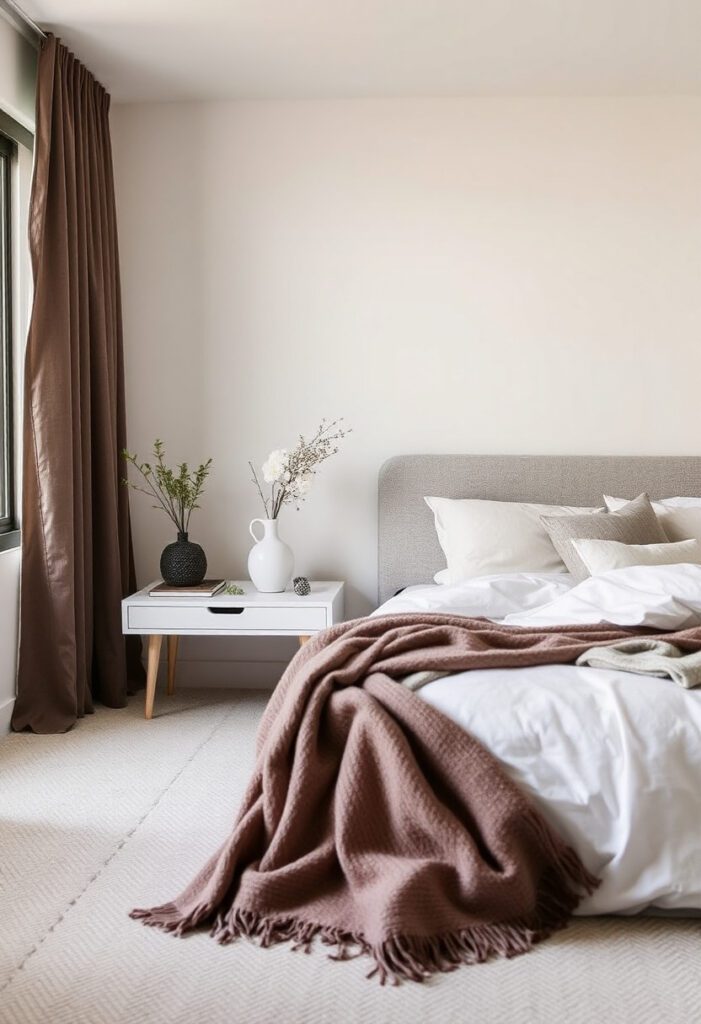
Inconsistent sounds are more disruptive than steady background noise. Traffic, neighbors, or even a partner’s snoring can fragment your sleep cycles, leaving you tired even after a full night in bed.
Your bedroom is affecting your sleep when sounds are jolting you awake or preventing you from reaching deep sleep stages.
Sound management solutions:
- Use a white noise machine or app to mask irregular sounds
- Add soft furnishings like curtains, rugs, or upholstered furniture to absorb sound
- Try foam earplugs designed for sleeping
- Position your bed away from shared walls or noisy windows when possible
Consistency is key — your brain adapts better to steady sounds than to silence broken by sudden noise.
7. Your Bedroom Air Feels Stuffy or Stale
Poor air quality makes your body work harder during sleep. If your bedroom feels stuffy, has lingering odors, or lacks fresh air circulation, you’re not getting the oxygen-rich environment your body needs for restorative sleep.
Stagnant air is a subtle way your bedroom is affecting your sleep — you might not consciously notice it, but your body does.
Improve your air quality:
- Open windows for 10-15 minutes daily, even in winter
- Add an air-purifying plant like a snake plant or peace lily
- Use a small air purifier if you have allergies
- Wash bedding weekly in hot water to reduce dust mites
Fresh air isn’t a luxury — it’s a sleep necessity. Even small improvements in air circulation can help you breathe easier and sleep deeper.
8. Your Sleep Schedule Varies Dramatically on Weekends
Irregular sleep patterns confuse your internal clock. If you go to bed at 10 PM on weekdays but stay up until 2 AM on weekends, you’re creating “social jet lag” that makes Monday mornings brutal.
This isn’t directly about your physical bedroom, but your bedroom routine is affecting your sleep quality. Your body thrives on consistency.
Build a steady sleep rhythm:
- Try to keep bedtime within 1-2 hours of your weekday schedule
- Use the same pre-sleep routine every night
- Expose yourself to bright light in the morning to reset your circadian rhythm
- Avoid “catching up” on sleep with long weekend naps
What small change could you make to your weekend routine that would help Monday feel less jarring?
9. You Associate Your Bed with Stress or Wakefulness
Your bed should signal sleep, not anxiety. If you lie awake worrying, checking your phone, or feeling frustrated about not sleeping, you’re training your brain to associate your bed with stress instead of rest.
This psychological aspect is often the hidden way your bedroom is affecting your sleep — it becomes a place of tension rather than relaxation.
Retrain your sleep association:
- Use the “20-minute rule” — if you can’t fall asleep, get up and do a quiet activity until sleepy
- Keep a small notepad nearby to quickly jot down worries so you can address them tomorrow
- Make your bed each morning to reinforce it as a special, restful space
Your bedroom should feel like a retreat, not a battlefield. Small changes in how you interact with your sleep space can rebuild positive associations.
Transform Your Sleep Tonight
You don’t need to overhaul your entire bedroom to see improvements. Pick just one or two signs that resonated most with you and start there. Maybe it’s blackout curtains, or perhaps it’s clearing that pile of clothes from your dresser.
Which of these bedroom changes will you tackle first? Start small, stay consistent, and notice how even minor adjustments can help you wake up feeling more refreshed.

